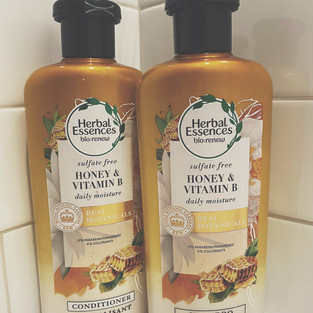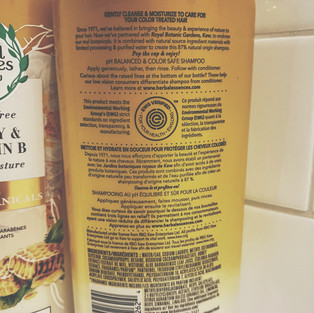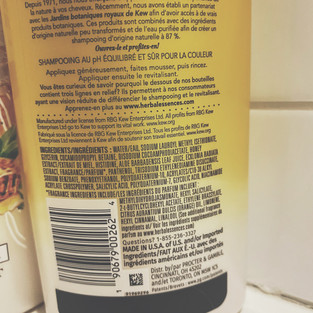Companies to Watch Out For When It Comes to Greenwashing
- Brittany Westveer
- Apr 27, 2020
- 4 min read
Marketing is a powerful tool. Everywhere you look, there are products trying to mislead you - whether it's foods claiming to be heart healthy but full of added sugars to "natural" cleaning supplies with different names for harsh chemicals. The Zero Waste and sustainable movement is no exception. With new reports coming out daily on products that consumers "know and love" causing cancer or harming their health, companies are turning to buzzwords like "natural" or "eco" to trick those consumers into buying their new products. This is called greenwashing.
What is greenwashing? You've heard the term in media but not frequently enough. According to Investopedia - "Greenwashing is the process of conveying a false impression or providing misleading information about how a company's products are more environmentally sound. Greenwashing is considered an unsubstantiated claim to deceive consumers into believing that a company's products are environmentally friendly. For example, companies involved in greenwashing behavior might make claims that their products are from recycled materials or have energy-saving benefits. Although some of the environmental claims might be partly true, companies engaged in greenwashing typically exaggerate their claims or the benefits in an attempt to mislead consumers."
There are tons of companies marketing through greenwashing daily and some are better than others at hiding it. If you're wondering whether your recent purchase is really "green," Medium has a great article on the signs for greenwashing and how to stop it by author Leyla Acaroglu here. Maybe you own a small business that you want to market as more natural, Medium also has a very informative article by Jamie McIlhatton on How Not To Greenwash: A Guide For Business Owners.
I've put together a small list of companies that have track records of greenwashing in their business practices. Again, there are many more out there but I tried to make this short list diverse, ranging from coffee to cleaning products, beauty to fashion. These are companies i've personally purchased from in the past or still have products for today. My explanations will be brief but will reference other articles going more in-depth on how they are considered greenwashing. Keep these on your radar for the next time you are out and wanting to remain sustainably-conscious.
- Starbucks
In 2018, the giant corporation set a goal to ban single-use plastic straws from all of its stores by 2020 but instead, will be replacing them with sippy cup lids made of harsher, stronger plastics that are hard to recycle. This isn't the first time Starbucks has set a goal... well over a decade before, the company claimed it would "create reusable or easily recyclable plastic cups by 2015"... but this still has not happened. The Guardian as well as Fast Company have some great articles explaining this move, how it may not be so environmentally-friendly like the company claims as well as how wasteful the brand actually is.
- Herbal Essences
With plenty of journals, articles, research and more, this is an easy one to prove of greenwashing. For this, I did my own research in the comfort of my bathroom. A few months back, I purchased what I thought was at least slightly environmentally-conscious from a big corporation... turns out, I was wrong. Not only is this an incredibly hard bottle to recycle, thanks to the sheer amount of plastic creating it but the ingredients are almost an entirely another language of chemicals i've never heard of. If this was a natural product, it would consist of the plain-as-day words in the ingredients list. I also used this product on my hair for about two months and can tell you - it doesn't nearly get your hair as clean as other natural shampoos/conditioners. Another sustainable blogger, Sustainably Savvy wrote a great piece on this exact Herbal Essences product here. If you need shampoo/conditioners, I would HIGHLY recommend Upfront Cosmetics bars... they smell amazing, clean your hair correctly and no plastic!
- Burt's Bees
After doing some research to write this article, I had absolutely no idea Burt's Bees was bought out by Clorox in 2008... I've owned a few Burt's Bees chapsticks in my time and would never thought in a million years, thanks to some great marketing about "helping the greater good." According to the company, they are more sustainable and natural now more than ever, but it leaves some with a very bad taste in their mouth who used to be fans of the small company back in the day. Groundswell made a very informative argument for the positives and negatives of "natural" companies, including Burt's Bees, being bought out and the bottom line for those seeking a better beauty product in the future.
- Mrs. Meyers
This one devastates me more than any... As I just did a small haul from Grove Collaborative just recently and got several Mrs. Meyer's products, I started looking into how "eco-friendly" the company really is and discovered... not very much. The company is owned by SC Johnson for starters... one of the biggest Western corporations that contributes to a large amount of plastic waste in the world and some of their ingredients on their notable products, contain C or D rated materials by the Environmental Working Group. Still tearing up about my Rosemary hand soap... If you need more evidence (like I did...) check out Little Urban Life's piece on Mrs. Meyers here.
- H&M
More research is coming out each day on H&M's new line of products partnered with Re:newcell and the company's mission to only use recycled or sustainably sourced material to create their clothing lines by 2023. As someone who used to buy clothes from this company and Forever 21, there is no bigger lines known for being "fast fashion." Will the company actually make their promise? Or is this just another ploy to sustain the fast fashion industry? While we wait for the answer, here's an excellent Independent article on the subject.
Greenwashing is occurring more and more everyday and for someone who wants to be more eco-friendly and sustainably-conscious, it's important to do your research and watch out for red flags. There are some great tools out there that can lead you down the right path of avoiding greenwashing like mobile apps Think Dirty and EWG, where you can scan products, learn their ingredients and find products that align with your personal missions.
If you have tips on other companies that are known for greenwashing that you would like to see an article of, please contact me directly from the home page or consciouslyeco@gmail.com.
Photo by Mert Guller on Unsplash












Comments